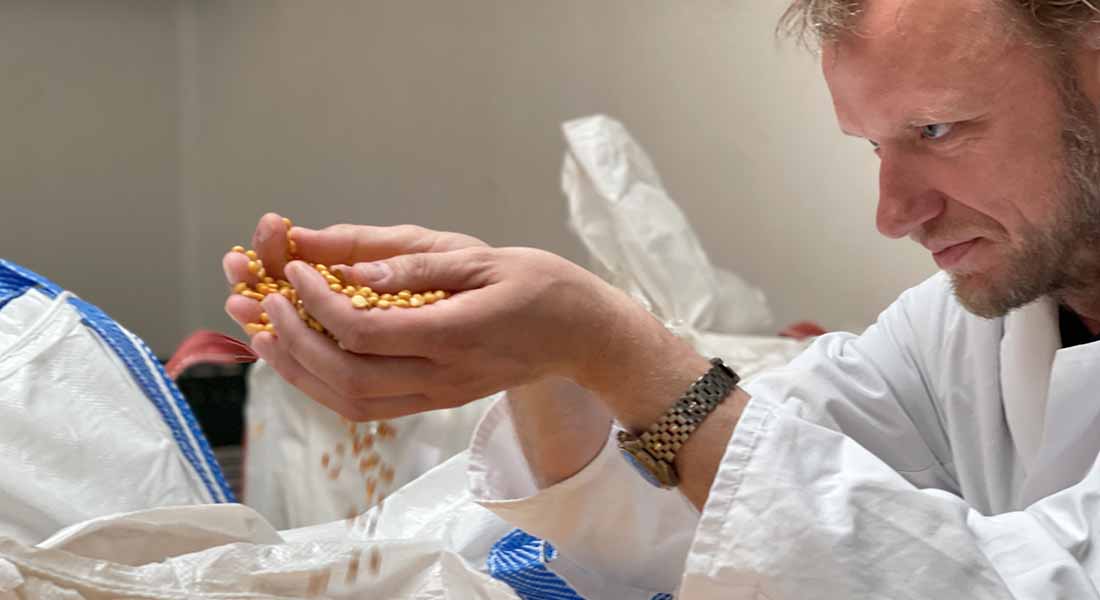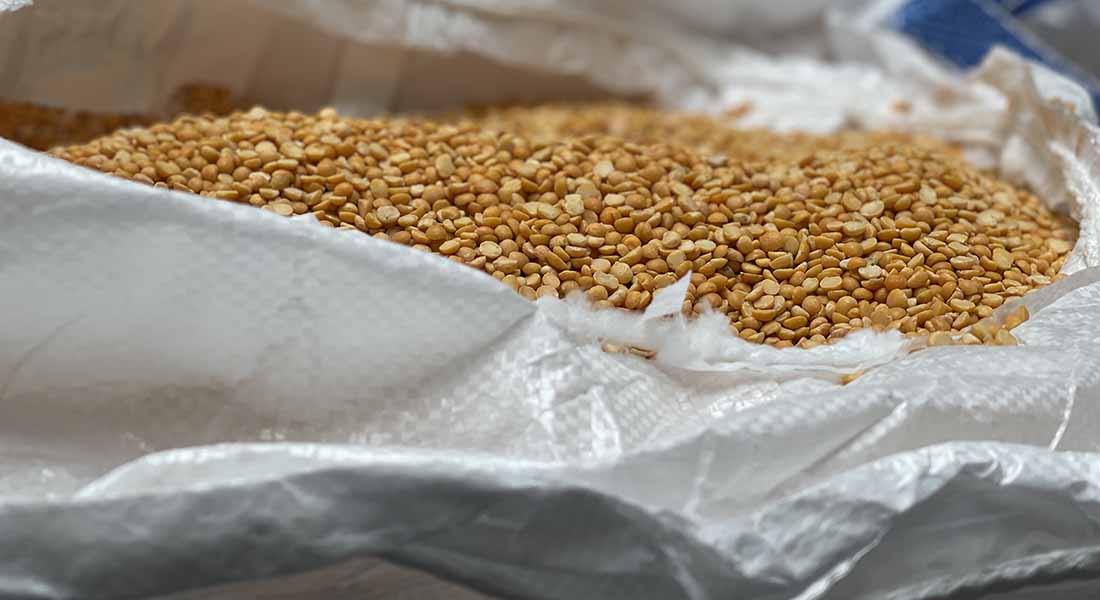
Researchers want to create an entirely new category of climate-friendly plant-based foods
A new research project, PROFERMENT, run by the Department of Food Science at the University of Copenhagen, has received DKK 56 million from the Novo Nordisk Foundation to develop the fundamental knowledge required to invent a completely new category of sustainable, plant-based foods as an alternative to animal protein sources.

Creating a whole new food category requires a major food science initiative and the Novo Nordisk Foundation has now set this in motion with a grant of tens of millions of kroner. The research will be carried out in a partnership between the University of Copenhagen, the Technical University of Denmark and Utrecht University in the Netherlands.
Read more about PROFERMENT on the project's homepage
“In PROFERMENT, we will use fermentation to optimise plant-based protein sources, so that the nutrient content and nutrient availability is increased, while creating flavours and textures that are appealing to us humans and provide a good eating experience,” explains professor at the Department of Food Science at the University of Copenhagen (UCPH FOOD) Dennis Sandris Nielsen, who is leading the research project.
When it comes to processing plants into protein-rich food, we are in some aspects roughly where we were in terms of development as with milk and dairy products at the beginning of the industrialisation. We could produce milk, butter and cheese, but we knew very little about what was going on at the microbiological and biochemical level leading to fluctuations in quality.
“With the climate changes we are facing, we just have to figure it out much faster than we did with dairy products,” says Dennis Sandris Nielsen, who is very much looking forward to the task:
“It is fantastic that we now have six years to do the fundamental microbiological research that will form the foundation for an entirely new food category. This should make it much easier for us to eat in a much more climate-friendly way that is also healthy, while potentially allowing us to reduce greenhouse gas emissions,” he says.
1/3 of the Earth’s arable land is used to grow feed for animals. Theoretically, you could use these resources to feed four billion more people without increasing agricultural land use.
The research grant from the Novo Nordisk Challenge Programme 2021 - Proteins for Tomorrow's Food – is one of the largest investments in Denmark when it comes to basic food research in proteins.
Will create plant-based food enjoyment
The idea with PROFERMENT is to create a holistic concept where researchers use fermentation to address the challenges that exist when using plant-based raw materials as a real alternative to animal protein. In this way, you can create a natural path that is easy to take when we need to cut down on the large amounts of greenhouse gases it costs to “send plants through livestock” instead of using them directly for human nutrition.
“There is a reason why we eat meat and other animal protein. It has a really good nutritional composition as well as some flavour components and a mouthfeel that, perhaps for evolutionary reasons, we really like. If we have to eat less meat, there is no point in trying to suppress these desires. We want to find some plant-based alternatives to meat that do not necessarily look like meat, but which offer the same enjoyment of food that meat provides for many of us,” explains Dennis Sandris Nielsen.
We are lacking gentle processing methods for plants
The research is based on yellow peas and oats, because both crops grow well in the northern hemisphere and already have a relatively high protein content. At the same time, they are crops that are currently being used primarily for animal feed. The idea is also that the methods should be transferable to other crops, with the oats representing grains and the yellow peas representing legumes.
The researchers will process the plants using fermentation, which is an age-old method for processing foods, so that they become more flavourful and last longer.
“Many consumers prioritise the environment, but at the moment they have to settle for highly processed meat alternatives. We lack methods for making plant-based alternatives to meat that are treated more naturally and can be described as “clean label”. Therefore, we want to make use of fermentation,” says Dennis Sandris Nielsen.
The researchers will use a combination of Bacillus bacteria and various moulds for the processing of both the yellow peas and the oats, thereby increasing the nutritional value and creating the desired structure and taste that will make plant-based proteins a real alternative to animal protein.

The plants store proteins for themselves
The thing is, plants generally protect their proteins really well, which is why they are not very accessible when we humans eat them.
“You could say that the plants have made their proteins for a rainy day or for when they need to germinate. They are packed well and truly into the plant, and this is where Bacillus in combination with the moulds come into the picture as tools to increase digestibility and the content of essential amino acids,” explains Dennis Sandris Nielsen.
In addition to increasing the nutritional value, it is also important that the taste and structure are as we want them.
“We will not “only” make it taste good or “only” create an improved content of amino acids that humans need – we aim to design microbial consortia that when used for fermenting the plant materials creates as many positive effects as possible by using methods that are as sustainable as possible,” says Dennis Sandris Nielsen.
PROFERMENT starts on 1 January 2022, and the project will run for six years until 31 December 2027.
Read more about PROFERMENT at the Novo Nordisk Foundation's homepage.
Related News
Contact
Professor Dennis Sandris Nielsen, Department of Food Science at the University of Copenhagen (KU FOOD), dn@food.ku.dk
Or
Communications officer, KU FOOD, Lene Hundborg Koss, lene.h.koss@food.ku.dk
Facts about PROFERMENT
PROFERMENT (Solid-state fermentations for protein transformations and palatability of plant-based foods) has been allocated approximately DKK 56.4 million from the Novo Nordisk Foundation Challenge Programme 2021 under the theme “Proteins for Tomorrow’s Food”.
Project period: 01-01-2022 to 31-12-2027.
Professor Dennis Sandris Nielsen from the Department of Food Science at the University of Copenhagen (UCPH FOOD) is leading the project together with three co-project leaders:
Professor Anne S. Meyer, DTU Bioengineering
Professor Wender Bredie, UCPH FOOD
Professor Han Wösten, Utrecht University
The researchers will work with the following main themes:
- The bioavailability of proteins from oats and yellow peas, as well as increasing the content of essential amino acids.
- The formation of structure in the food, so as to achieve a good mouthfeel when you eat it.
- The taste and how to produce important flavour precursors by fermentation.


